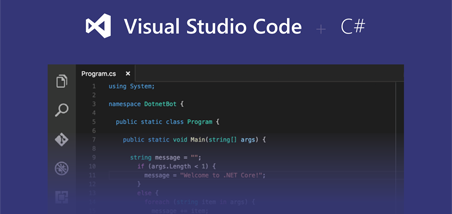Oracle Database 12c Administration
Oracle EğitimleriBu eğitim, Oracle
veritabanının yönetimi
konusunda sağlam bir temel oluşturulması için tasarlanmıştır. Katılımcılar bu
eğitimde, Oracle Veritabanı mimarisi ile ilgili kavramsal bilgiler edinmekle
birlikte Oracle Veritabanının nasıl etkili ve verimli bir şekilde yönetileceğini
öğrenirler.
Bu
eğitimde neler öğreneceksiniz?
•
Oracle Veritabanı sunucusunu yönetme
•
Oracle Ağ ortamını
yapılandırma
• Depolama yapılarını
oluşturma ve yönetme
• Veri yönetimi
ve verileri taşıma.
• Kullanıcı oluşturma
ve kullanıcıları yönetme.
•
Veritabanı izleme ve
performans yönetimi.
• Database as a Cloud
Service (Bulut Hizmeti olarak Veritabanı) veritabanı dağıtımları oluşturma ve yönetme
Eğitim İçeriği
Overview of Oracle Database 12
•
Configuring the
instance and database
•
Balancing user
requirements and resources
•
Ensuring database
availability
•
Conceptualizing the
Oracle 12c architecture
•
Processing
transactions with the Oracle 12c server
•
Identifying types of
processes, memory structures and files
Constructing an Oracle 12
•
Creating the database
•
Automating memory
allocation with memory targets
•
Establishing network
connectivity
•
Setting up control
files and online redo log files
•
Starting and stopping
the database
•
Mounting and opening
the database
•
Authenticating
connections having SYSDBA privilege
Automating administration with Oracle Enterprise Manager (OEM) Cloud
Control 12
•
Evaluating the OEM
architecture
•
Navigating the
graphical interface
•
Comparing
command-line and graphical techniques
•
Maintaining the database
with OEM Cloud Control 12c
•
Setting thresholds
and generating alerts
•
Managing privileges
and roles
•
Evaluating container
and pluggable databases
Flashing Back Oracle 12
•
Configuring UNDO
tablespaces
•
Setting UNDO
retention targets
•
Switching to an alternative
UNDO tablespace
•
Monitoring and
reversing changes to data
•
Tracking changes to
data values with row history
•
Backing out user
errors with Flashback Table
•
Retrieving dropped
tables from the recycle bin
•
Implementing the
Valid Time support feature
Managing Users and Resources
•
Establishing user
accounts
•
Authenticating users
with Oracle 12c password validation
•
Allocating space
quotas and limiting resource usage
•
Enforcing security
•
Granting and revoking
system and object privileges
•
Simplifying privilege
management with roles
•
Capturing the use of
privileges with dbms_privilege_capture
Performing Space Management
•
Building the storage
hierarchy
•
Configuring
tablespaces and datafiles
•
Handling sort data
with temporary tablespaces
•
Creating Oracle
Managed Files
•
Structuring data and
index segments
•
Managing extents,
blocks and large objects (LOB) storage
•
Eliminating row
migration with PCTFREE and Data Pump
•
Conserving storage by
compressing table data
•
Regaining space by
shrinking tables and indexes online
Partitioning for Performance and Administration
•
Creating partitioned
and subpartitioned tables
•
Evaluating range,
list and hash partitioning methods
•
Administering
partitions with merge, split, add and drop
•
Deploying partitioned
tables based on virtual columns and referenced tables
•
Maintaining index
partitions
•
Comparing the
performance and maintenance of local and global indexes
•
Monitoring index
partitions and rebuilding unusable indexes
•
Limiting indexing of
partitions with partial indexing
Building a Fault-Tolerant Database
•
Safeguarding the
database
•
Role of the redo log
and control file
•
Ensuring recovery
using archiving
•
Protecting and
tracing the control file
•
Backing up the
database and performing recovery
•
Implementing
user-managed hot and cold backups
•
Restoring and recovering
the entire database
•
Recovering corrupted
tablespaces
•
Managing logical
errors with flashback transaction back out
Ön Koşullar
SQL ve PL / SQL hakkında ve temel Linux işletim sistemi hakkında bilgi sahibi olmak faydalı olacaktır.






